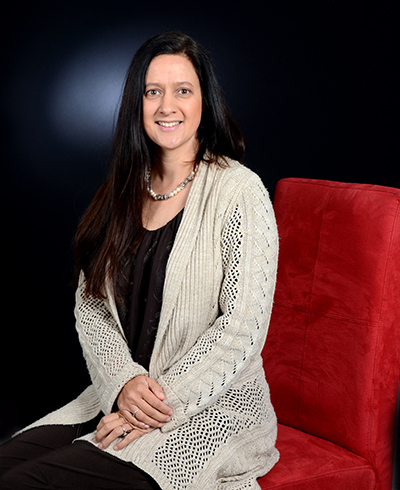News & Media
Curiosity is key
 Prof Elmarie Kritzinger
Prof Elmarie Kritzinger
What factors influenced you to choose this career path?
The major factor that mapped my career path is the love of learning. This curiosity to learn new things has resulted in a lifelong learning involvement in academia as lecturer and researcher.
What kind of education, training, or background?
I obtained my PhD in Information Systems in 2006. The focus of my PhD studies included improving information security awareness amongst end users. I also completed my PGCE at Unisa as my interest field (Information Systems) merged with education. My research now focuses primarily on educating school learners about cyber safety awareness when using information communication technology (ICT).
What do you do? What are the duties/functions/responsibilities of your job?
I am an Associate Professor within the School of Computing (CSET). My responsibilities include:
- Tuition (teaching and learning)
- Community engagement (cyber safety for school learners)
- Academic citizenship (Chair of the Higher Degrees Committee within the School of Computing)
- Research (NRF Y-rated researcher)
What part of this job do you personally find most satisfying?
I think the most satisfying aspect of being a lecturer is being a researcher and contributing new research to the existing body of knowledge within cyber safety education for all ICT users, and especially school learners.
What has been the greatest challenge you have faced in your career to date?
One of the biggest challenges is to ensure that your research is current and contributes to existing problems facing South Africa.
What kinds of accomplishments tend to be valued and rewarded in this field?
One of the most prestigious rewards is being a NRF-rated researcher. This is one goal to work towards to ensure that you are making an impact and valuable contribution to your research field.
What are the major qualifications for success in this occupation?
This is twofold: first to have the academic qualifications within your field that forms the basis for being a researcher, and, second, to have a deep-rooted connection to teaching and learning and to ensure that all your students are successful in their studies.
What particular skills or talents are most essential to be effective in your job?
Being a researcher is about listening to others to find out what the current need(s) or problem(s) are and then have the problem-solving skills to provide a possible solution to solve or improve the current situation.
What is the future of the field in terms of new and expanding opportunities?
The expanding opportunities are to collaborate with international researchers to ensure that your contribution is not only validated nationally but also by international peers.
What sorts of changes are occurring in your occupation?
Within my field the rapid change of technology is one of the most important aspects to take into consideration. More users are using technology every day and it is vital to provide clear guidance on protecting yourself and your information within the technology (cyber) space.
Who would you say has been the most help in your career? How did they help you?
The mentors who assisted me in my career were my supervisors for my master’s and doctoral studies. My supervisors provided me with the skills, knowledge and curiosity to conduct research.
Can you suggest some ways a learner could obtain this necessary experience?
The best advice is that anyone who wants to become a researcher should take note of the importance of completing postgraduate studies. Your PhD is not the final destination of research but the start of new and exciting possibilities.
What exactly does the word ‘success’ mean to you?
Being happy and content with what you are doing.
Publish date: 2016/10/17

 Unisa co-hosts G20 community outreach in the Eastern Cape
Unisa co-hosts G20 community outreach in the Eastern Cape
 Unisans gain membership of prestigious science academies
Unisans gain membership of prestigious science academies
 Advocating for disability transformation through servant leadership
Advocating for disability transformation through servant leadership
 Unisa Press continues to illuminate the publishing space
Unisa Press continues to illuminate the publishing space